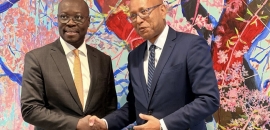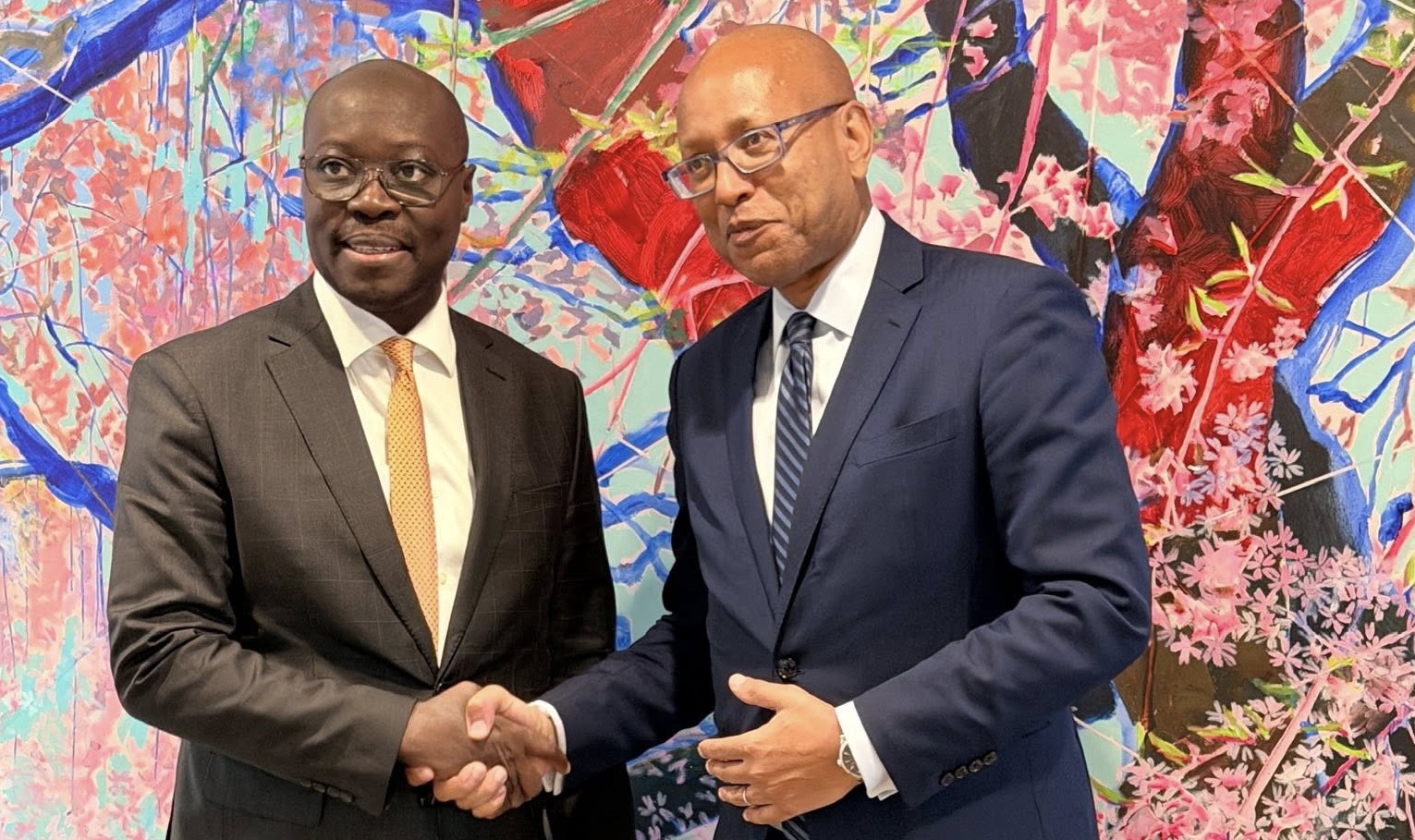
Ghana to Launch Oil Palm Policy Targeting 500,000 Jobs by 2026
Oct 20, 2025
by Chris Benyah Oct 20, 2025

Ghana to Launch Oil Palm Policy Targeting 500,000 Jobs by 2026
October 20, 2025 Finance Minister Dr. Cassiel Ato Forson has revealed that the government is in the final stages of developing a comprehensive Oil Palm Plantation Policy, which will be presented in the 2026 Budget as part of a broader strategy to transform Ghana's agricultural sector.
The announcement follows high-level discussions between Dr. Ato Forson and Mr. Ethiopis Tafara, Regional Vice President for Africa at the International Finance Corporation (IFC), focused on enhancing collaboration to boost agricultural productivity and economic growth.
Ambitious Job Creation Target
According to the Finance Minister, the oil palm initiative is projected to generate over 500,000 jobs across the entire value chain, spanning cultivation, processing, manufacturing, and export operations.
"The potential is enormous. With the right investment and partnerships, we believe Ghana can create over 500,000 jobs across the value chain, from cultivation and processing to manufacturing and exports, through the development of these strategic crops," Dr. Ato Forson stated in a Facebook post on Saturday.
The policy framework aims to position oil palm cultivation as a cornerstone of Ghana's economic transformation agenda, with agriculture serving as a primary driver of employment, industrialization, and inclusive growth.
Mobilizing International Support
Dr. Ato Forson emphasized that achieving transformation on this scale requires substantial and sustained financing. The government is actively engaging with international development institutions to secure long-term capital and encourage private sector investment in the agricultural sector.
"I also emphasised that such large-scale agricultural transformation requires patient capital, and we are therefore working closely with the World Bank, IFC, and other development partners to mobilise financing and catalyse private sector participation," the Minister noted.
The collaboration with global financial institutions reflects the government's recognition that developing a robust oil palm industry will require significant upfront investment in infrastructure, technology, and farmer support systems.
Strategic Vision for Agricultural Development
The upcoming Oil Palm Plantation Policy is part of a wider government initiative to develop economic crops and reposition agriculture as the foundation for national economic development. The policy will establish clear guidelines for developing the oil palm value chain from farm to factory, creating opportunities for smallholder farmers, processors, and exporters.
"Ghana is ready to move. Together with our partners, we will harness the power of agriculture to deliver inclusive growth, create jobs, and place economic crops at the heart of our nation's transformation agenda," Dr. Ato Forson declared.
Economic Significance
Oil palm represents a significant opportunity for Ghana's economy. The crop is used in numerous industries, including food production, cosmetics, biofuels, and manufacturing, creating diverse employment opportunities beyond traditional farming.
Industry experts have long identified oil palm as an underutilized resource in Ghana, despite the country's favorable climate and soil conditions for cultivation. Neighboring countries in West Africa have successfully developed large-scale oil palm industries that contribute substantially to their economies.
Implementation Timeline
While specific details of the policy framework have not yet been disclosed, its inclusion in the 2026 Budget suggests implementation could begin as early as next year. The government is expected to outline funding mechanisms, land allocation strategies, and support programs for farmers when the full policy document is unveiled.
The initiative represents one of the most ambitious agricultural development programs announced by the current administration, signaling a strategic shift toward agriculture-led economic growth and job creation in Ghana.